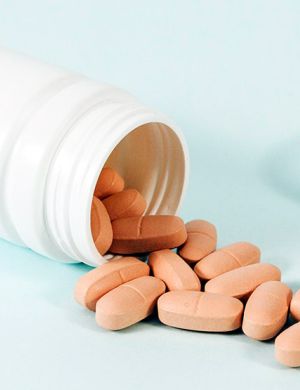
Medical Devices-USA/Europe Regulatory News – April 2023
USA (FDA)
Cybersecurity in Medical Devices: Refuse to Accept Policy for Cyber Devices and Related Systems Under Section 524B of the FD&C Act-Guidance for Industry and Food and Drug Administration Staff
On December 29, 2022, the Consolidated Appropriations Act, 2023 (“Omnibus”) was signed into law. Section 3305 of the Omnibus – “Ensuring Cybersecurity of Medical Devices” – amended the Federal Food, Drug, and Cosmetic Act (FD&C Act) by adding section 524B, Ensuring Cybersecurity of Devices. The Omnibus states that the amendments to the FD&C Act shall take effect 90 days after the enactment of this Act on March 29, 2023. As provided by the Omnibus, the cybersecurity requirements do not apply to an application or submission submitted to the Food and Drug Administration (FDA) before March 29, 2023.
General Considerations for Animal Studies Intended to Evaluate Medical Devices
This guidance is applicable to animal studies intended to provide evidence of device safety, which may include performance and handling, in premarket submissions to FDA. These types of submissions include investigational device exemption (IDE) applications, premarket approval applications (PMA), premarket notification (510(k)), humanitarian device exemption (HDE) applications, or De Novo classification requests. This guidance is not intended to alter or supersede any device specific final guidance but is intended to augment the recommendations in device-specific guidance.
This guidance also does not apply to basic exploratory studies conducted to determine whether a device has any potential utility or preliminary assessments of physical or chemical characteristics of a device. In addition, this guidance does not apply to, nor changes any regulatory requirements relevant to, animal studies conducted under the Animal Rule.21 Finally, this guidance is not intended to address the regulations and policies of other agencies.
Soft (Hydrophilic) Daily Wear Contact Lenses – Performance Criteria for Safety and Performance Based Pathway
This guidance provides performance criteria for soft (hydrophilic) daily wear contact lenses in support of the Safety and Performance Based Pathway. Under this framework, submitters (you) planning to submit a 510(k) using the Safety and Performance Based Pathway for soft (hydrophilic) contact lenses will have the option to use the performance criteria proposed in this guidance to support substantial equivalence, rather than a direct comparison of the performance of the subject device to that of a predicate device
Intended Use/Indications for Use:
The soft (hydrophilic) daily wear contact lenses that fall within the scope of this guidance are prescription devices intended to be worn directly against the cornea and adjacent limbal and scleral areas of the eye for the optical correction of ametropia (myopia or hyperopia with or without astigmatism). The lenses are designed to be frequent replacement or daily disposable lenses.
Soft (hydrophilic) contact lenses with the following indications for use and/or characteristics are outside the scope of this guidance:
- To correct presbyopia
- To enhance or alter the apparent color of the eye
- To act as a bandage or therapeutic lens
- For the management of keratoconus or irregular corneal conditions
- Lenses with special optical performance beyond that of correcting ametropia (e.g., blue light filtering)
- Lenses with special physical performance (e.g., retains moisture, lubricates, reduces deposits)
- Lenses with special health performance characteristics (e.g., relieves dry eye)
EUROPE
Scientific Committee on Health, Environmental and Emerging Risks (SCHEER)
Regulation (EU) 2017/745 on medical devices (MDR) establish a legal obligation on the Commission to provide the relevant scientific committee with a mandate to prepare guidelines on the benefit-risk assessment of the presence of phthalates, which belong to either of the groups of substances that are carcinogenic, mutagenic or toxic to reproduction of category 1A or 1B, in accordance with Part 3 of Annex VI to Regulation (EC) No 1272/2008, or that have endocrine disrupting properties.
The obligation to have the guidance available was set on 26 May 2020 and the document was adopted by SCHEER at plenary meeting on 18 June 2019.
The MDR sets also a legal obligation for the update of the guidance, on the basis of the latest scientific evidence. Such update can be made when appropriate and, at least, every five years.
Q&A on practical aspects related to the implementation of Regulation (EU) 2023/607 – Extension of the MDR transitional period and removal of the “sell off” periods
The amendment of the MDR and of the IVDR through Regulation (EU) 2023/607 aims to ensure a high level of public health protection, including patient safety and an avoidance of shortages of medical devices needed for the smooth functioning of healthcare services, without lowering current quality or safety requirements. For that purpose, manufacturers and notified bodies are given sufficiently more time to carry out, in accordance with the MDR, the conformity assessment of devices covered by a certificate or a declaration of conformity issued in accordance with Directive 90/385/EEC or Directive 93/42/EEC. Moreover, the deletion of the ‘sell off’ date in the MDR and the IVDR aims to prevent unnecessary disposal of safe devices.
The answers to the questions set out below have been developed taking into account the objectives pursued by the amendment with a view to making best use of the additional time provided by the extension of the MDR transitional period.
Regulation (EU) 2023/607 of 15 March 2023 amending Regulations (EU) 2017/745 and (EU) 2017/746 as regards the transitional provisions
Regulation (EU) 2023/607EN of the European Parliament and of the Council of 15 March 2023 amending Regulations (EU) 2017/745 and (EU) 2017/746 as regards the transitional provisions for certain medical devices and in vitro diagnostic medical devices. The Regulation introduces a staggered extension of the transition period provided for in Regulation (EU) 2017/745 on medical devices (MDR), subject to certain conditions. It also deletes in both MDR and IVDR the “sell-off” deadline after which devices placed on the market before or during the transition periods that are still in the supply chain would have had to be withdrawn.
Commission delays notified body reassessments to free up capacity for MDR, IVDR
The European Commission has published delegated regulations to change the frequency that notified bodies are reassessed under the new device and diagnostic regulations.
Under the original Medical Devices Regulation (MDR) and In Vitro Diagnostics Regulation (IVDR), notified bodies designated to certify devices under the rules needed to be reassessed three years after first being notified and every four years thereafter. The need to free up time at existing MDR/IVDR notified bodies and focus authorities’ resources on new assessments led the Commission to rethink the requirements.
The publication of the delegated regulations resets the period between assessments to five years. The new timeline has now taken effect, although some notified bodies may still undergo assessment more frequently than every five years.
Guideline on computerised systems and electronic data in clinical trials
The European Medicines Agency (EMA) has finalized a guideline on computerized systems and electronic data in clinical trials. EMA’s document, which replaces a reflection paper on the same topic, is intended to help stakeholders adapt to increases in the complexity of computerized systems that have happened in recent years.
In setting out the need for guidance, EMA pointed to the rapid changes that have occurred as electronic case report forms, electronic patient reported outcomes, wearable devices and artificial intelligence have become part of the clinical trial landscape. EMA has designed the guidance to help stakeholders use the new technologies while ensuring the quality and reliability of trial data, and the rights, dignity, safety and wellbeing of trial participants.
Expert decision and opinion in the context of the Clinical Evaluation Consultation Procedure (CECP)
In accordance with MDR Annex IX, 5.1.g., the notify body shall provide a full justification where it has not followed the advice of the expert panel in its conformity assessment report.
The notified body is obliged to give due consideration to views expressed in the scientific opinion of the expert panel and in particular in case experts find the level of clinical evidence not sufficient or have serious concerns about the benefit-risk determination, the consistency of the clinical evidence with the intended purpose including the medical indications or with the post-market clinical follow-up (PMCF) plan.
SWITZERLAND (SWISS MEDIC)
MDR/IVDR amendment: Equivalence with EU Regulation on Medical Devices ensured
During the transitional phase, until the Medical Devices Ordinance (MedDO) and the Ordinance on In Vitro Diagnostic Medical Devices (IvDO) are amended, Swissmedic is already going ahead with enforcement according to the EU amendment to avoid jeopardising the supply of medical devices in Switzerland. In the EU, amendments of the EU-MDR 2017/745 regarding transitional periods for certificates, and of the EU-MDR and EU-IVDR 2017/746 regarding the elimination of deadlines for putting devices into service and placing on the market, were published on 20th March 2023.
Swissmedic inspects Class I manufacturers in Switzerland
The new regulation stipulates that devices must be subject to market surveillance (e.g. incidents involving the devices as well as trends that might indicate an increase in the number of complaints or the severity of incidents).
Manufacturers of Class I medical devices (for example surgical shavers, positioning aids, surgical masks or non-sterile wound dressings) have been obliged to ensure that their devices comply with the new regulation. Manufacturers confirm compliance with the new requirements in their declaration of conformity. Swissmedic must be notified of these devices.
FINLAND (FIMEA)
The amending decree extending the transition periods of the medical device regulations entered into force
The amending regulation approved by the EU Council on March 7, 2023, which conditionally extends the validity periods of certificates in accordance with medical device directives, has been published in the EU’s official journal and entered into force on March 20, 2023.The decree also removes the restrictions on the last date for the sale of medical devices and in vitro diagnostic devices in accordance with the directives. These measures will reduce the possible risk of a shortage of medical equipment.
In order to take advantage of the new transition periods, devices and manufacturers must meet certain conditions. These conditions aim to ensure that the additional time is only applied to devices that are safe and for which the manufacturers have already started the certification process.
Decree extending the validity of medical device certificates approved
On March 7, 2023, the EU Council approved a regulation extending the validity periods of certificates in accordance with the medical device directives. The decree also removes the restrictions on the last date for the sale of medical devices and in vitro diagnostic devices in accordance with the directives. These measures will reduce the possible risk of a shortage of medical equipment. The regulation will enter into force immediately after it has been published in the official journal within the next few weeks.
The expiry date of the certificates according to the directives defined in the MD regulation for medical devices is 26 May 2024. With the now approved regulation, the validity dates of the certificates are extended to the end of 2027 and 2028, depending on the risk categories of the devices.
EMA launches pilot of medical device clinical trial advice
The European Medicines Agency (EMA), which has been coordinating the work of expert panels for medical devices since March 2022, will start piloting the scientific advice for clinical research mentioned in the MD regulation. The pilot lasts about a year. The goal of the service is stronger support for innovations in the EU area and faster access to the market for safe and efficient devices.
The pilot is looking for devices on the widest possible scale from different fields of medicine. EMA prioritizes devices that: -benefit a relatively small group of patients, e.g. devices aimed at pediatric use is aimed at life-threatening situations or otherwise serious situations for which there is currently no adequate treatment or the current treatments are particularly risky are new devices that achieve a significant clinical or health benefit.
UNITED KINGDOM (MHRA)
Extension of CE certificates
The EU has taken steps to give manufacturers more time to get certain medical devices certified under the EU Medical Devices Regulation (EU MDR). The new arrangements recognise the challenges in capacity across notified bodies.
Key changes include:
Extension of the transitional period for higher-risk devices (class III and certain class IIb implantables), such as pacemakers, to comply with EU MDR requirements until 31 December 2027, subject to certain conditions (including requirements for post-market surveillance, quality management systems, and engagement with notified bodies).
Extension of the transitional period for medium and lower-risk devices (other class IIb devices, class IIa, class Im, Is and Ir devices), such as syringes, to comply with EU MDR requirements until 31 December 2028, subject to certain conditions (including requirements for post-market surveillance, quality management systems, and engagement with notified bodies).
Register medical devices to place on the market
This guidance explains about How to register your medical devices with the Medicines and Healthcare Products Regulatory Agency (MHRA) for the markets in Great Britain and Northern Ireland.
Updates to the Review Registration, Making Changes to your registration and Public Register of Manufacturers sections. Updated Account Management and Device Registration Reference Guides.
Export medical devices
It explains about the Order a certificate of free sale to export medical devices outside the UK.
A CFS should not be taken as a Government endorsement of any product that is referred to on the certificate. In issuing a CFS, the MHRA does not assess or verify that the product complies with relevant export requirements and restrictions. It is the applicant’s responsibility to ensure compliance with these requirements and restrictions.
Crafting an intended purpose in the context of Software as a Medical Device (SaMD)
Guidance on defining intended purpose for Software as a Medical Device (SaMD), to help SaMD manufacturers in meeting their statutory obligations. MHRA consider an inadequately defined intended purpose as a potential serious failure to meet key medical device requirements. For instance, where this amounts to a failure to provide adequate information needed to use the SaMD safely and properly.
This document is aimed at manufacturers of SaMD, including standalone software and apps. The purpose of the document is to explain the benefits of having a clear and accurate intended purpose. It has not been specifically drafted for products with hardware components with a medical purpose but also contain software e.g., Software in a Medical Device (SiMD). Nevertheless, the core principles of this document may be of assistance to all medical device manufacturers.
Extending and expanding the intended purpose and alterations in relation to change management activities are outside the scope of this guidance document.
IRELAND (HPRA)
Extension to MDR transitional provisions
This extension gives more time to notified bodies and manufacturers to certify devices under the MDR. It aims to avoid disruption to the supply and availability of devices and health care in the EU.
Industry stakeholders should read and review the Regulation to understand how the extension may impact their organisation.
The extension will apply to a medical device if:
- It meets the specific criteria outlined in Regulation (EU) 2023/607.
- Its certificate expires after 20 March 2023.
Where a device meets the specific criteria but its certificate expired before 20 March 2023, Irish-based manufacturers should email us at devices@hpra.ie.
Application for a Clinical Investigation of Non-CE Marked Medical Devices (Article 62 MDR)
Sponsors who wish to submit an application to the HPRA for a clinical investigation falling under Article 62 of EU Regulation 2017/745 (MDR) are required to complete this application form and submit it with the relevant supporting documentation as described below.
Validation of this application will be completed and review will commence only once all relevant application documentation is submitted. If completed documentation is not received within the timeframe specified in a notification of an incomplete application from the HPRA, the application will be deemed lapsed.
Don’t miss out! Click here to stay in touch.
Categories
- Biopharma (47)
- Consumer Health (15)
- Cosmetics (8)
- Diagnostics (5)
- Digital Health (8)
- Food (2)
- Medical Device (100)
- OTC (3)
- Regulatory Intelligence (5)
- Standards (40)
Recent Blogs
Get the latest updates from Vistaar

Related Posts
CONNECT WITH US

Let's talk about how DDi can help you







